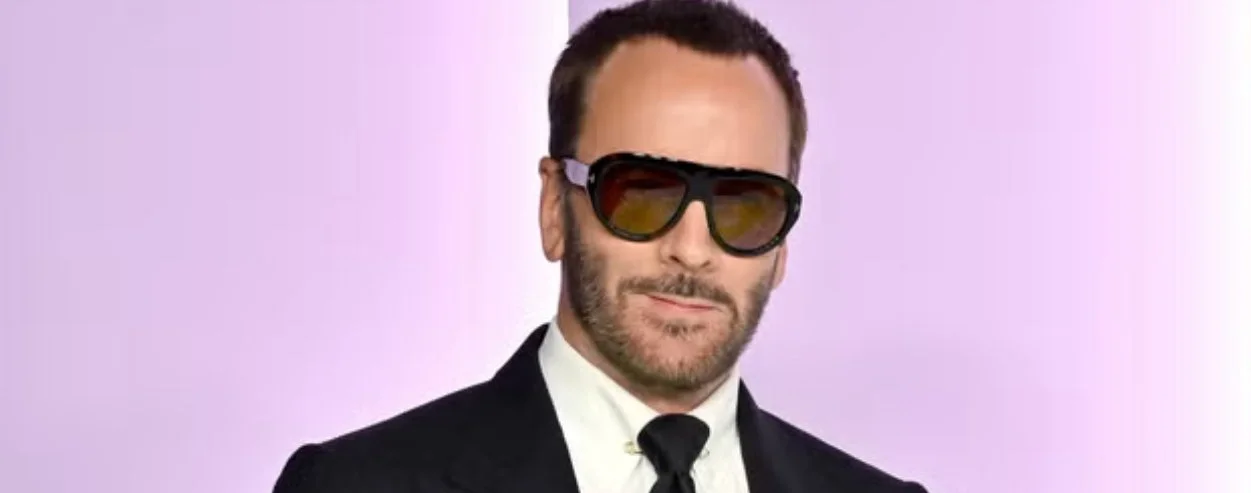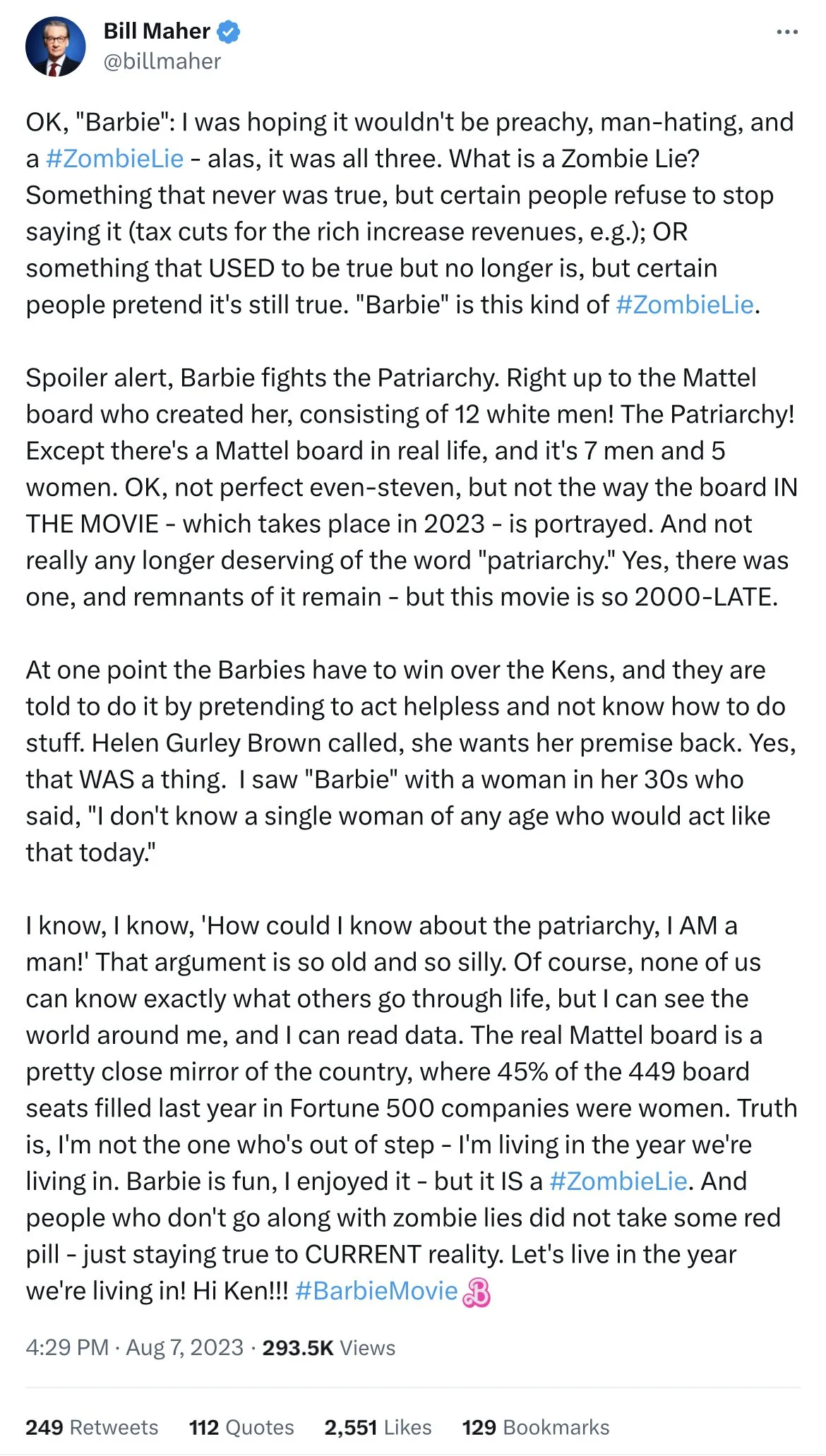HBO late-night host Bill Maher despised “Barbie” so much that he had to vent out his feelings on Twitter. He’s consequently triggered the hate of Greta Gerwig fans.
So, I presume, Maher is not friends with Marc Maron, who said, just last week, that men who don’t like “Barbie” are “f*cking insecure babies” and that they should go “look in their pants and decide what they’re made of”.
“Barbie” is satire. I’m not as mad as Maher about the Mattel board in the film being all-men because, again, satire. Gerwig’s film is a fun-as-it-goes romp that turns to speechifying and that’s where I agree with Maher.
In my “Barbie” review (07.18.23), I wrote that the film is incredibly self-absorbed in its own virtues. It’s a joyously over-the-top meta feminist manifesto, but it’s also faux-feminism. There’s not much substance in what it’s trying to say.
If I was, somewhat, at first, hooked on the story of Barbie and Ken traveling from Barbieland to the real world, I completely clocked out once Gerwig decided to hammer down a speechifying lesson in the film’s second half.
Gerwig has been fairly silent about some of the backlash against her film, but she did tell the New York Times that her “hope for the movie is that it’s an invitation for everybody to be part of the party and let go of the things that aren’t necessarily serving us as either women or men.”
“Barbie” has been getting, mostly, good reviews, and hit $1 billion worldwide on the weekend. The “Barbie” marketing campaign by Warner Bros was perfect. They limited political talk, barely mentioning the film’s feminist aspects, and, instead, completely zeroed in on the comedic nature of the film.
How the film was marketed, and the viral campaign that followed, will be studied for many years to come. It was a masterful display of product selling.







